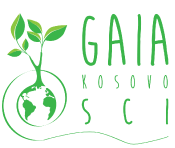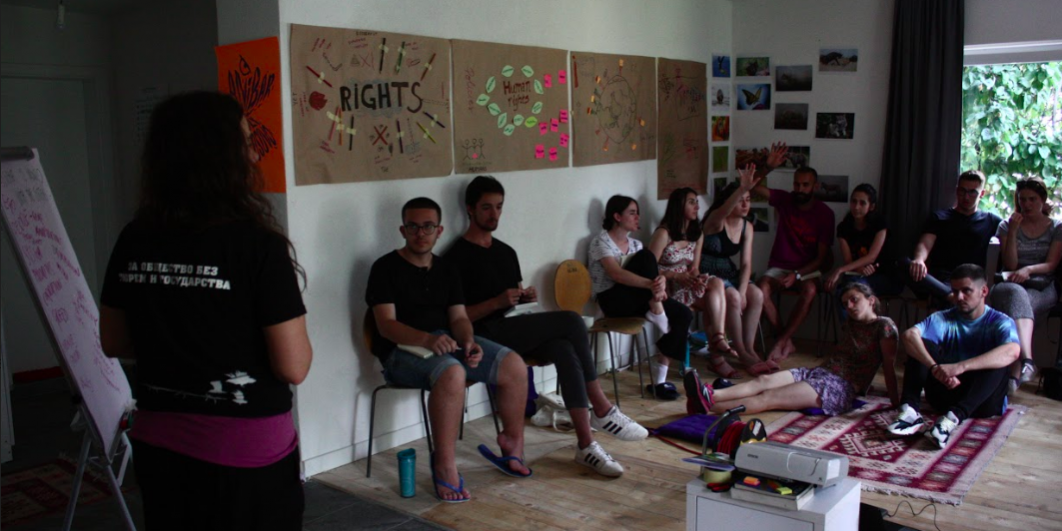What is it to be a climate activist? Are you one?
We would like to think that we are. But thinking, we realise, is not enough. If we look at the word ‘activism’ for a second, we see that the first three letters spell out ‘act’, this is not just a coincidence. It’s funny how the idea of acting, even though it seems to be obvious, is sometimes forgotten. Well, we didn’t have time to forget.
As said before, the most evident individual action we have engaged in was being vegetarian for the whole week. Moreover, it is interesting how one of the biggest things you can do as a person in order to help fight climate change is actually to refrain from acting; not eating meat. Over 20% of the greenhouse gases are emitted because of the agriculture industry. Keep this in mind, because this industry today is much more destructive, not at all what Naim Frashëri wrote about in his “Bagëti e Bujqësi” (Livestock and Agriculture). The choices one makes can have a large footprint on the world; even if, it’s only one person.
However, we also acted, actually acted. We roamed the streets of Peja, in four groups, and interviewed people. People were very kind and willing to answer, whether they were 18 or 88. We asked people whether they have noticed any abnormal events connected to the climate. We got a lot of answers that had a general thread, the answer ‘yes’. Many of the older people told us about how the amount of snowfall has drastically changed, a lot of wildlife they used to see when they were kids are not there anymore and the temperatures have increasingly gotten higher.
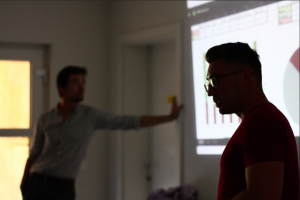 But even among younger generations with fewer years lived to notice this difference, the changing climate was apparent in the high temperatures, the incoherent seasons and simply the amount of filth in our water and air. Furthermore, people were asked whether they would support the construction of the “Kosova e Re” coal power plant. Most of them had only heard about it and had no real opinion; few were highly concerned that their electricity bill would be more expensive if the new coal power plant would be built. After the interview, each group told the respondents about the environmental and health risks that the new plant would pose to the citizens of Kosovo, the region and that we need to move away from lignite and move towards solar and wind power. Kosovo has great conditions to support green energy, there are 280 days with full sun in this region, which makes Kosovo a great place to have solar energy.
But even among younger generations with fewer years lived to notice this difference, the changing climate was apparent in the high temperatures, the incoherent seasons and simply the amount of filth in our water and air. Furthermore, people were asked whether they would support the construction of the “Kosova e Re” coal power plant. Most of them had only heard about it and had no real opinion; few were highly concerned that their electricity bill would be more expensive if the new coal power plant would be built. After the interview, each group told the respondents about the environmental and health risks that the new plant would pose to the citizens of Kosovo, the region and that we need to move away from lignite and move towards solar and wind power. Kosovo has great conditions to support green energy, there are 280 days with full sun in this region, which makes Kosovo a great place to have solar energy.
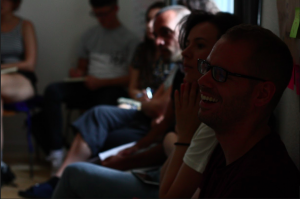
The interviewing exercise not only gave us some more perspective, but it also made all the information we had been receiving regarding the climate crisis and the dangers posed to the Earth very palpable. Not that it didn’t make sense before, but now we talked to more than 40 people about it and somehow it became personal. A lot of the respondents were very supportive of this training, to the extent that a lot of them said that they had put their trust in us, as young change-makers. Hence, instead of applying our will to help into some fictional scenario, we worked on real plans.
A group worked on a manifesto, a statement for climate justice, which was directed to decision-makers and to citizens. Another group worked on a brochure, one to be given to the general public, with emotional and informational value. The third group came up with ideas and researched about plausible events which we could do during the Climate Diplomacy Week ’19. Lastly, a group worked on initiating Fridays For Future Kosovo; a world-wide movement asking governments for change, mostly during Fridays and Global Climate Strikes (the next one is on the 20th of September). All of the groups then received feedback from each other, and let’s say: it was very inspiring. It made us understand that even ‘small’ people like us with a big goal in mind can actually do something. When we realised that it had started, it was real, not fictional, and we all began the process of becoming climate activists. And we will keep chanting for climate justice, in one way or another, as long as it will take! Hopefully, with all of you joining in for the Earth!
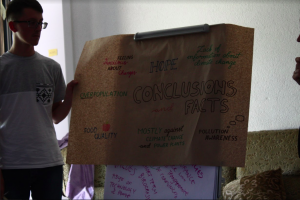
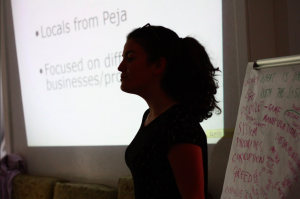
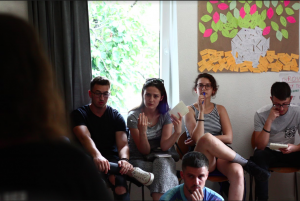
[This blog was written by a participant of the training]
This grant is supported by the ‘Civil Society programme for Albania and Kosovo’, financed by the Norwegian Ministry of Foreign Affairs and managed by Kosovar Civil Society Foundation (KCSF) in partnership with Partners Albania for Change and Development (PA). The content and recommendations do not represent the official position of the Norwegian Ministry of Foreign Affairs and Kosovar Civil Society Foundation (KCSF).
